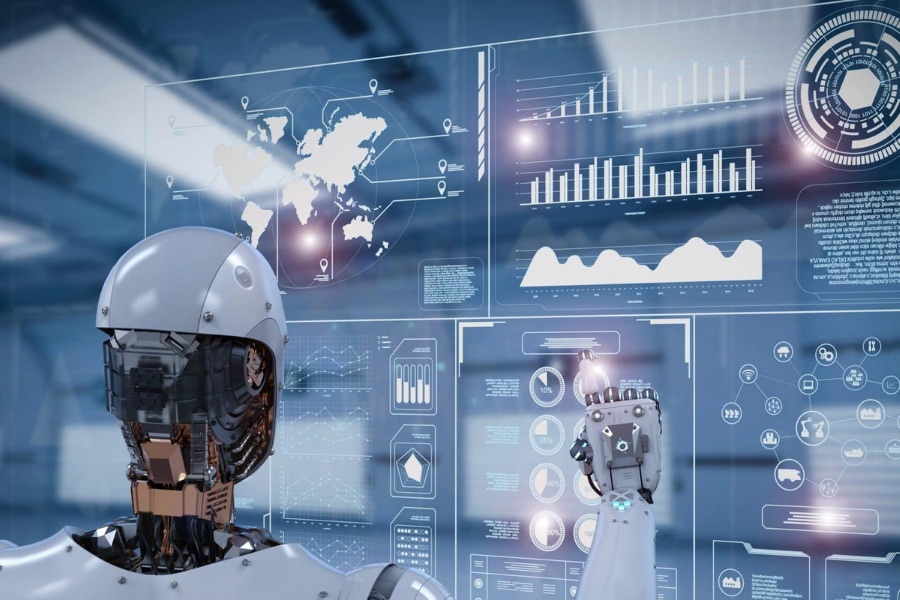AI Customer Journeys for Cybersecurity Brands
August 19, 2025, 4 min read
In cybersecurity marketing, the customer journey is rarely simple. Buyers move slowly, engage with many touchpoints, and involve multiple stakeholders. Artificial intelligence (AI) can help. With AI, brands can guide prospects through adaptive, personalized journeys that build trust and speed up decisions.
This blog explains how AI shapes customer journeys in cybersecurity and how your brand can use it to grow.
Why Customer Journeys Are Complex in Cybersecurity
Cybersecurity buyers aren’t just evaluating products. They’re also looking for credibility. So, every glance and research towards a product is filtered through skepticism: Can this vendor be trusted with compliance? Do they truly understand the regulatory landscape? Will they stand up in the face of an audit or breach?
A typical journey may include:
- Reading blogs and whitepapers to understand threats.
- Attending webinars or events for deeper insights.
- Comparing vendors through reviews, analyst reports, and peer feedback.
- Engaging with sales only after several months of research.
Traditional marketing struggles to keep up with these long and non-linear journeys. AI makes it possible to respond to buyer needs at every step.
How AI Shapes Customer Journeys
AI transforms customer journeys by making them more adaptive, predictive, and personalized.
Here are key ways AI adds value:
1. Predictive Path Mapping
AI analyzes behavior to predict what the next step should be.
Example: if a CISO downloads a compliance whitepaper, AI suggests a webinar on regulations.
2. Content Personalization
AI delivers the right content to the right person at the right time. A security engineer might get technical deep dives, while executives receive ROI-focused reports.
3. Journey Orchestration
AI ensures that journeys adapt based on behavior. If a lead ignores emails but engages on LinkedIn, AI shifts focus to social campaigns.
4. Real-Time Engagement
AI-driven chatbots or assistants provide answers instantly. This keeps prospects engaged instead of waiting days for a response.
Benefits for Cybersecurity Brands
AI-driven journeys deliver measurable impact:
- Efficiency: Less manual work for marketing teams.
- Better engagement: Customers receive content that matches their stage and role.
- Trust building: Relevant interactions show understanding of customer challenges.
- Faster conversions: Buyers move forward with more confidence.
Steps to Build AI-Driven Customer Journeys
Building AI-powered journeys requires planning. Here is a roadmap:
Step 1 — Map the Current Journey
- Identify all touchpoints: blogs, events, demos, trials.
- See where leads drop off or disengage.
Step 2 — Integrate AI Tools
- Use platforms like Salesforce Einstein, HubSpot AI, or journey orchestration tools such as Thunderhead.
- Ensure they connect with your CRM and analytics.
Step 3 — Personalize by Persona
- Define segments: CISOs, IT managers, compliance officers.
- Use AI to deliver tailored messages for each role.
Step 4 — Automate Multi-Channel Journeys
- Coordinate across email, social, ads, and webinars.
- AI keeps messaging consistent and timely.
Step 5 — Measure and Refine
- Track engagement and conversions.
- Refine journeys as AI learns what works best.
Case Example
A cybersecurity vendor used AI journey orchestration to guide leads. The system detected that security analysts engaged with technical blogs but not with webinars. Instead of pushing webinar invites, the AI delivered hands-on labs and case studies.
Conversion rates increased by 45%, and the sales cycle shortened by 3 months.
Balancing AI with Human Touch
AI cannot replace empathy and trust. In cybersecurity, buyers want real proof and human connection.
Balance automation with:
- Expert-led webinars and Q&A sessions.
- Personalized follow-ups from sales teams.
- Thought leadership articles written by real professionals.
AI should handle the mechanics, while humans handle credibility and relationships.
Future of AI in Customer Journeys
The future is more predictive and more seamless. Expect AI systems that guide customers even before they know their needs. Imagine AI alerting a prospect to new compliance rules and recommending your solution before they start searching. Early adopters will gain a major edge.
Conclusion
AI makes customer journeys in cybersecurity more relevant, adaptive, and effective. It removes friction, delivers the right content, and builds confidence. But the best results come from combining AI efficiency with human trust. Brands that adopt this balance will win loyalty and conversions.
Next Step: Promote Your Brand
Creating AI-powered customer journeys is only part of the equation. To grow visibility and trust, cybersecurity brands should also appear in industry directories and trusted platforms. Directories build credibility, improve SEO, and connect you with buyers researching solutions.
One of the best ways to do this is to join GCS Network.
As a global platform, GCS Network helps cybersecurity brands showcase solutions, publish insights, and gain exposure to a worldwide audience.
Listing in the GCS directory positions your brand alongside leading innovators, while media promotion strengthens awareness and authority.
Promote your brand with GCS Network and build stronger connections today.




























